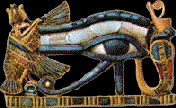 It's a common understandable belief that during the KT era (Cretaceous-tertiary) 65 billion years ago, a great impact hit earth in the Yucatan Peninsula and over thousands of years, though climate change, wiped out the dinosaurs' habitat, then the animals themselves. There's so much more to it, as paleontologists and forensic anthropologists now know.
It's a common understandable belief that during the KT era (Cretaceous-tertiary) 65 billion years ago, a great impact hit earth in the Yucatan Peninsula and over thousands of years, though climate change, wiped out the dinosaurs' habitat, then the animals themselves. There's so much more to it, as paleontologists and forensic anthropologists now know.
These were large creatures - they were allowed to grow that large on a planet that sustained them.

 However they had no biodiversity - they were very inter-related and therefore, any virus would make easy leaps.
However they had no biodiversity - they were very inter-related and therefore, any virus would make easy leaps. One was caused by a handy little killer called a nemotode which, when entering the body through water, is microscopic but grows in the gut to lengths as huge as the animal is.
One found in an Asian elephant grew to over 25' long. Imagine how big they became in dinos. They were painful and fatal.
 Then you have the infamous sand fly. We see them today preserved in amber. This pesky creature had mandibles similar to steak knives which cut and sawed their way through the dino-skin and left infections and disease, besides stressing the animal. Again, because they were so related, what felled a Triceratops could also kill a Spinosaur or Stegosaur.
Then you have the infamous sand fly. We see them today preserved in amber. This pesky creature had mandibles similar to steak knives which cut and sawed their way through the dino-skin and left infections and disease, besides stressing the animal. Again, because they were so related, what felled a Triceratops could also kill a Spinosaur or Stegosaur. Earth was a very hostile volcanic world for the giants, too. They inhaled toxic fumes from constant eruptions, another culprit in reducing the populace.
So:
1. Dinosaurs were in a weakened state due to viral infection and parasites such as leish-maniasis and nemotodes long before the asteroid hit.
2. They were also victimized by disease-carrying insects, mostly sandflies, which were rampant in that era and impossible to stop.
3. When the KT asteroid hit, it most likely found a planet of a small population of giant reptiles already dying out. This was just the coup-de-gras.
 Another aside: Why have we found so few dinosaur fossils, especially of the one great predator Tyrannosaurus - in all the world we only have a few "almost" compete skeletal remains. What of others, where are their hundreds of thousands of fossils? Back to the original dino wipe-out:
Another aside: Why have we found so few dinosaur fossils, especially of the one great predator Tyrannosaurus - in all the world we only have a few "almost" compete skeletal remains. What of others, where are their hundreds of thousands of fossils? Back to the original dino wipe-out: If all this is true, and empirical forensic science gives much proof of it, then it shows us early fair warning of our own early demise. We know the sun will die, it's too small to go nova but will become a red giant and...you know the rest. All life will already be extinct by then.
 However, in our time of perhaps the next several hundred years, it's far from impossible to imagine unknown viruses (HIV) disease (SARS) climate change (Africa) all coming together to conspire to wipe out earth's animal life, which of course includes us. We're not the apex life form we used to imagine we were. We are not even prepared for a biological outbreak caused by in-country war.
However, in our time of perhaps the next several hundred years, it's far from impossible to imagine unknown viruses (HIV) disease (SARS) climate change (Africa) all coming together to conspire to wipe out earth's animal life, which of course includes us. We're not the apex life form we used to imagine we were. We are not even prepared for a biological outbreak caused by in-country war. All you need do is visit Indo-China or areas in Malasia, to see how quickly disease becomes epidemic. The next step is pandemic and North America is not immune. We can learn from what happened 65 billion years ago by preparing for what we ourselves have put into play: don't forget, we built a national tourist attraction over a super volcano, which is overdue.
Yellowstone























































3 comments:
You actually make it seem really easy along with your presentation
however I find this topic to be actually something that I think I'd never understand. It seems too complex and extremely broad for me. I am taking a look forward to your next put up, I will attempt to get the grasp of it!
Also visit my blog post Herbal Party Pills
Jeez, a great and terrible post. Followed by a cheesy advertisement.pretending to be a comment.
I hope that what you find at my familycology.org site gives you a laugh or two instead, as I think it not cheesy. As for the free book it points to, I think you will find its contents both humorous and thought-provoking. In any case, while I am perhaps off my rocker, I do very much hope a right combination of new technologies administered for the common good may save us. That said, I hope you find reading some of TGNOS as time-worthy as all of your great posts .
love it!
love you!
thanks!
Natalie
Post a Comment